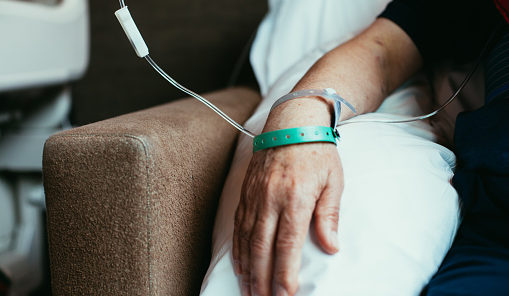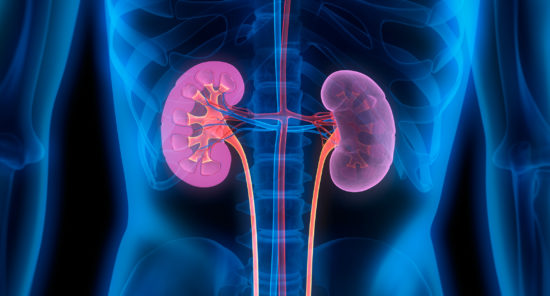Compared with control therapy, the Janus kinase inhibitor ruxolitinib leads to greater overall response, failure-free survival, and symptom response for glucocorticoid-refractory or -dependent chronic graft-versus-host disease (GVHD), according to a study published in the July 15 issue of the New England Journal of Medicine.
Robert Zeiser, M.D., from the University of Freiburg in Germany, and colleagues conducted a phase 3, open-label, randomized trial to examine the efficacy and safety of ruxolitinib compared with the investigator’s choice of therapy from a list of 10 commonly used options for patients aged 12 years or older with moderate or severe glucocorticoid-refractory or -dependent chronic GVHD.
Overall, 165 and 164 patients were randomly assigned to receive ruxolitinib or control therapy, respectively. The researchers found that compared with the control therapy group, overall response at week 24 was greater in the ruxolitinib group (49.7 versus 25.6 percent; odds ratio, 2.99). Longer median failure-free survival was seen with ruxolitinib versus control therapy (>18.6 versus 5.7 months; hazard ratio, 0.37), and symptom response was also higher (24.2 versus 11.0 percent; odds ratio, 2.62). Up to week 24, the most common grade 3 or higher adverse events were thrombocytopenia (15.2 percent in the ruxolitinib group and 10.1 percent in the control therapy group) and anemia (12.7 and 7.6 percent, respectively).
“Our trial showed that among patients with moderate or severe chronic GVHD in whom glucocorticoids produced an inadequate response, ruxolitinib was superior to control therapies,” the authors write.
The study was funded by Novartis and Incyte; Incyte manufactures ruxolitinib.
Abstract/Full Text (subscription or payment may be required)
Copyright © 2020 HealthDay. All rights reserved.
Credit: Original article published here.










